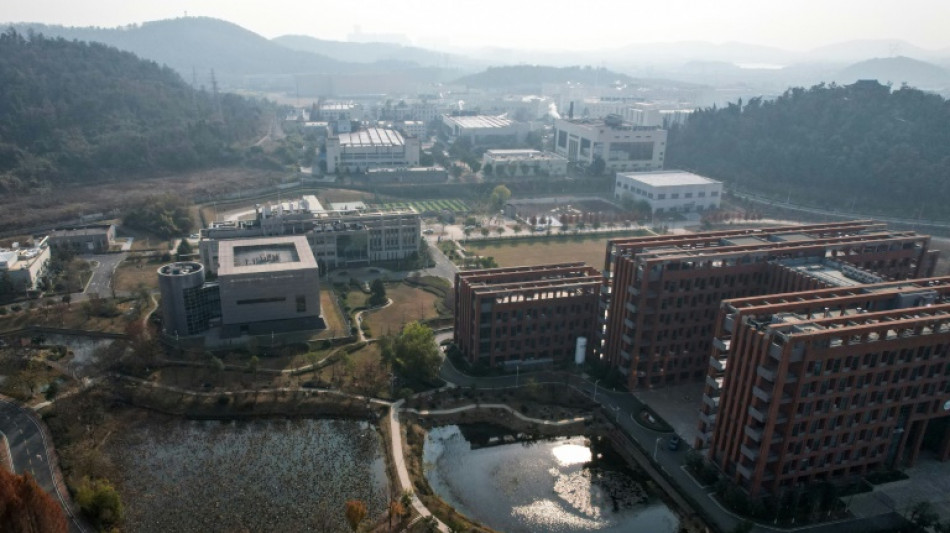
-
 Vinicius Junior in the clear over Clasico outburst
Vinicius Junior in the clear over Clasico outburst
-
UK welcomes king's move to strip Andrew of royal titles

-
 Liverpool must snap losing 'habit', says under-fire Slot
Liverpool must snap losing 'habit', says under-fire Slot
-
Bencic out of Hong Kong last eight as tennis injury list mounts
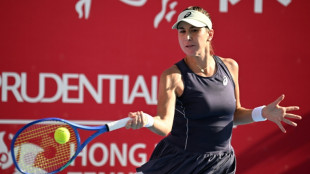
-
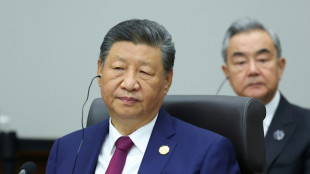 Xi invites Canada PM to China in first meet in 8 years
Xi invites Canada PM to China in first meet in 8 years
-
Chinese defence minister seeks 'trust' with US but cautions over Taiwan

-
 India's Rodrigues beat anxiety and tears to become World Cup star
India's Rodrigues beat anxiety and tears to become World Cup star
-
China, Canada leaders hold first formal talks since 2017
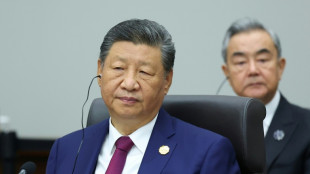
-
 Nvidia to supply 260,000 cutting-edge chips to South Korea
Nvidia to supply 260,000 cutting-edge chips to South Korea
-
Camels replace cows as Kenya battles drought
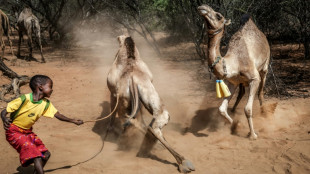
-
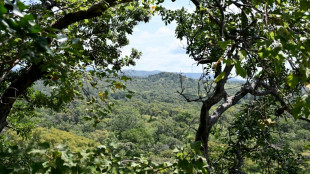 Endangered across west Africa, leopards thrive in I.Coast reserve
Endangered across west Africa, leopards thrive in I.Coast reserve
-
Risky gold rush drives young into Ivory Coast nature park
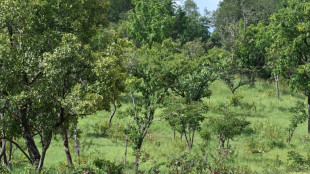
-
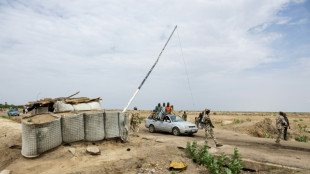 Deadly roads block mothers from care in jihadist-hit Nigeria
Deadly roads block mothers from care in jihadist-hit Nigeria
-
Pillaged I.Coast nature reserve on the mend after crisis decade
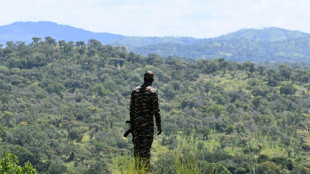
-
 India savours 'greatest day' after Women's World Cup heroics
India savours 'greatest day' after Women's World Cup heroics
-
Why emboldened Kim had little need for photo-op with Trump
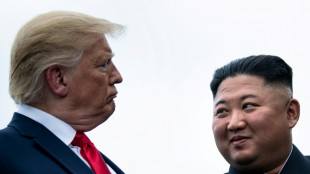
-
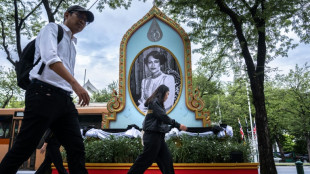 In the black: the business of mourning Thailand's queen mother
In the black: the business of mourning Thailand's queen mother
-
Tributes as death of Australian teenager touches cricket world
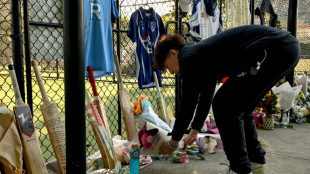
-
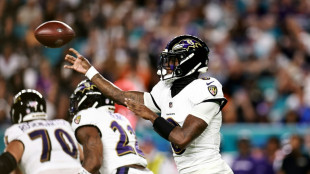 Jackson throws four TD passes as Ravens rout Dolphins
Jackson throws four TD passes as Ravens rout Dolphins
-
NBA champs Thunder roll past Wizards, Bucks and Spurs win

-
 UK's Andrew in freefall, stripped of queen's protection
UK's Andrew in freefall, stripped of queen's protection
-
Real Madrid and Barcelona aim to shake off Clasico consequences
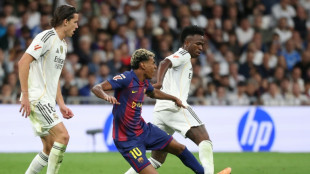
-
 Ambitious Paris FC making steady progress after landing in big time
Ambitious Paris FC making steady progress after landing in big time
-
Rebuilt Leverkusen hope to reignite Bundesliga rivalry at Bayern

-
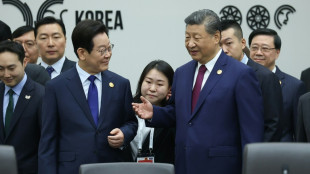 Xi primed to meet Japan, Canada leaders after Trump summit
Xi primed to meet Japan, Canada leaders after Trump summit
-
Australia coach Schmidt pleads for Edmed patience ahead of England clash

-
 Liverpool feel pressure to end 'crisis' run, Man City test Bournemouth limits
Liverpool feel pressure to end 'crisis' run, Man City test Bournemouth limits
-
Farrell eyes 'reset' as Ireland-All Blacks ready for 'Battle of Chicago'

-
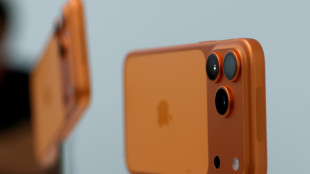 Asia markets mostly up on heels of Apple, Amazon earnings
Asia markets mostly up on heels of Apple, Amazon earnings
-
Jones wants Japan to enhance 2015 legacy against South Africa

-
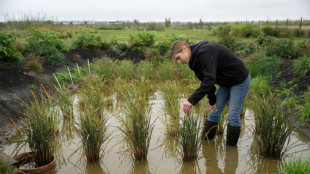 Growing rice in the UK 'not so crazy' as climate warms
Growing rice in the UK 'not so crazy' as climate warms
-
Australia say 'let ourselves down' after India end world domination

-
 AI cannot make cinema, director Linklater says
AI cannot make cinema, director Linklater says
-
After delays, Egypt set for lavish opening of grand museum
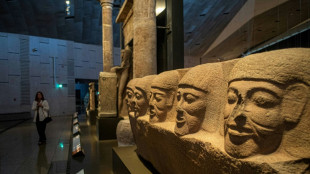
-
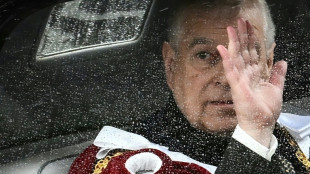 What we know about the downfall of Andrew, born a UK prince
What we know about the downfall of Andrew, born a UK prince
-
Desperate Dodgers mull using Ohtani as relief pitcher
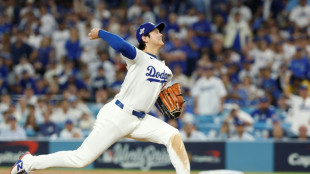
-
 Blue Jays vie to close out sputtering Dodgers in World Series
Blue Jays vie to close out sputtering Dodgers in World Series
-
Indigenous Australians celebrate historic state treaty
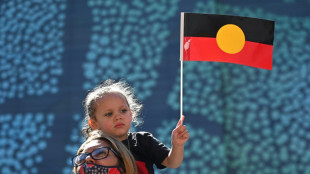
-
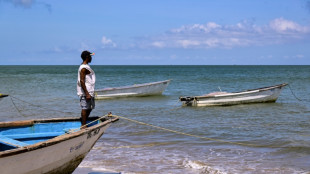 Caught between Venezuela and US, Trinidad fishermen fear the sea
Caught between Venezuela and US, Trinidad fishermen fear the sea
-
Latest NFL Chiefs-Bills duel has both chasing division leaders

-
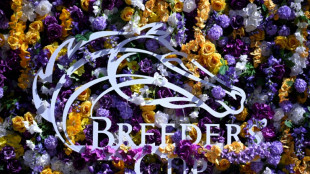 Sierra Leone chases rare repeat in Breeders' Cup Classic
Sierra Leone chases rare repeat in Breeders' Cup Classic
-
King Charles strips Andrew of royal titles, Windsor home

-
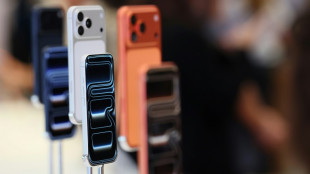 Sales of 'services' help Apple beat earnings forecasts
Sales of 'services' help Apple beat earnings forecasts
-
Beyond words: '67' crowned 'Word of the Year'
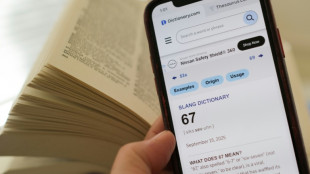
-
 Amazon shares surge as AI boom drives cloud growth
Amazon shares surge as AI boom drives cloud growth
-
Brazil boasts drop in deforestation ahead of UN climate talks
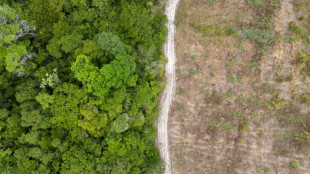
-
 Russians marking Stalin's repression warn against return to past
Russians marking Stalin's repression warn against return to past
-
Stocks mostly fall as investors digest Trump-Xi talks, earnings
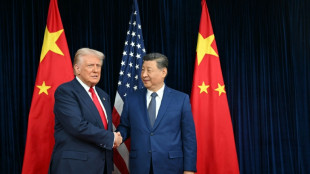
-
 Turkey says Pakistan-Afghanistan talks to resume
Turkey says Pakistan-Afghanistan talks to resume
-
Record-breaking India upset Australia to reach World Cup final


Covid's origins reviewed: Lab leak or natural spillover?
Whether Covid-19 was unleashed by a laboratory mishap or spilled over from animals remains an enduring, fiercely contested mystery.
Here are the leading arguments that fuel both sides of this debate, as AFP reflects on the virus's impact five years after it reshaped the world.
- The case for lab leak -
Proponents of the lab-leak hypothesis highlight that the earliest known Covid-19 cases emerged in Wuhan, China -- home to the Wuhan Institute of Virology (WIV), a major hub for coronavirus research -- located roughly 1,000 miles (1,600 kilometers) from the nearest bat populations carrying similar SARS-like viruses.
"Wuhan labs performed research that placed them on a trajectory to obtain SARS viruses having high pandemic potential," Richard Ebright, a microbiologist and professor at Rutgers University, told AFP.
"One year before the outbreak, Wuhan labs proposed research to obtain SARS viruses having even higher pandemic potential and features that match, in detail, the features of SARS CoV-2," he added.
This research proposal included engineering a structure called a "furin cleavage site," which increases viral growth and transmissibility but is absent in other SARS viruses.
Lab-leak advocates also cite concerns over biosafety standards at the Wuhan lab, where personnel reportedly only wore lab coats and gloves.
"There is sufficient evidence to conclude beyond reasonable doubt that SARS-CoV-2 entered humans through a research-related incident," Ebright concluded.
- The case for natural spillover -
On the other side, researchers like Angela Rasmussen, a virologist at the Vaccine and Infectious Disease Organization at the University of Saskatchewan in Canada, argue that real-world "hard evidence" consistently points to a wholesale seafood market in Wuhan.
"We've actually been looking at an evidence base that is hard evidence. It's evidence that can be measured," she told AFP, including genomic, geographic and environmental sampling data.
She contends that the case for a lab origin, by contrast, is built on "what ifs" and speculation. That would include claims that proposals for research on ways to greatly increase virus transmissibility were publicly rejected but secretly carried out.
This perspective is supported by multiple studies, including one published in the prestigious journal Science that analyzed the geographic pattern of Covid-19 cases during December 2019. The study showed cases were tightly clustered around Wuhan's Huanan Seafood Wholesale Market.
Another study, which examined genomic data from the earliest cases, concluded that the virus likely did not circulate widely in humans before November 2019.
More recently, in September 2024, a study published in Cell identified raccoon dogs, palm civets, Amur hedgehogs, and bamboo rats at the market.
Notably, raccoon dogs, which are closely related to foxes, are known to carry and transmit viruses similar to SARS-CoV-2, suggesting they could have acted as intermediaries between bats and humans.
For Rasmussen, the appeal of the lab-leak theory reflects a desire for straightforward answers. If the blame lies with wayward scientists or China, she argues, people will believe in the possibility of straightforward fixes.
- Where things stand now -
One thing is certain: the lab-leak theory, once dismissed as a conspiracy theory, has gained mainstream traction. For now, the debate remains unresolved -- scientifically and politically.
Some US agencies, like the Federal Bureau of Investigation and the Department of Energy, support the lab-leak theory, albeit with varying levels of confidence, while most elements of the intelligence community lean toward natural origins.
Lab-leak proponents, such as Alina Chan, a molecular biologist at the Broad Institute and author of "Viral: The Search for the Origin of Covid-19," continue to advocate for the full declassification of intelligence data and an independent investigation in China beyond the 2021 World Health Organization probe.
"There are many aspects of the pandemic that have damaged public trust in science and health institutions," Chan told AFP. "The origin of the pandemic is one of these."
G.Schmid--VB




